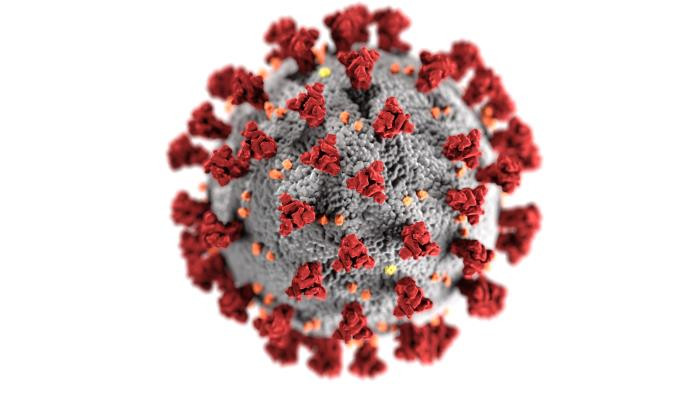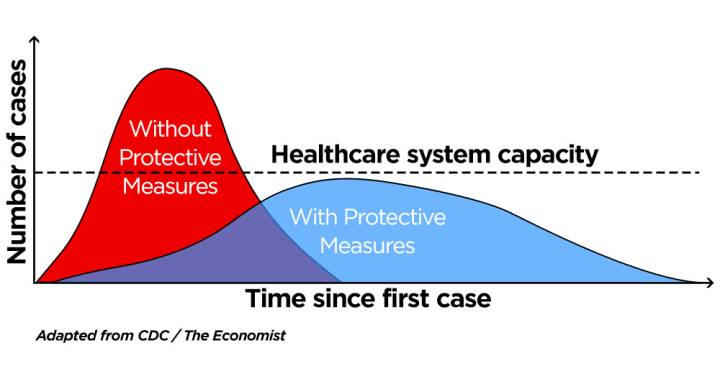A Quick Compilation of COVID-19 Reflections, Resources and Plastic-Free Living Tips

We salute all those on the front lines working hard to keep essential services going and caring for those in need.
This is unprecedented. A complete global reset. And nobody has any idea how it will all turn out.
How we react to this will be a real test for humanity, because there are various directions it could go. Thinker Charles Eisenstein's recent essay, The Coronation (note that it's a long one - 9000 words!), provides some enlightening reflections on where we may be headed. Let us hope we will move toward a world of love, community and compassion, rather than control, separation and fear.
One thing we can control right now is our reaction to what is happening. And the point of this little post is to try and help you out with that by providing in one place a few links to some helpful resources and plastic-free living tips in this time of COVID-19.
While it makes sense to limit one's intake of the barrage of news (and sometimes misinformation) being put out there, being informed about what is actually happening in one's home country and around the world helps create a sense of community. We really are all in this together - everywhere on Earth.
First, a few key basic sources of official information on Coronavirus disease (COVID-19):
- World Health Organization: https://www.who.int/emergencies/diseases/novel-coronavirus-2019
- Canadian Government COVID-19 page: https://www.canada.ca/en/public-health/services/diseases/coronavirus-disease-covid-19.html
- U.S. Government COVID-19 page: https://www.usa.gov/coronavirus
- See also the U.S. Centers for Disease Control and Prevention (CDC) coronavirus page: https://www.cdc.gov/coronavirus/2019-ncov/index.html
- European Union Coronavirus response page: https://ec.europa.eu/info/live-work-travel-eu/health/coronavirus-response_en
The priority right now is flattening the curve, which refers to epidemic control measures (such as community isolation) that keep the daily number of disease cases at a manageable level for the healthcare system. This chart explains that at a glance.

While our mission is the reduction of plastics for health and environmental reasons, we obviously understand that there is now a need for the use of certain plastics to address this global health crisis.
That said, there are still things we can all do to minimize our use of plastic in daily life, and in fact minimize our waste in general so there is less stress on waste management systems given the recent massive increase in the use of single use disposable plastics. We can do our part to flatten the curve while also minimizing our waste.
Our friends at Treehugger have provided a number of sound suggestions for minimizing plastic and other waste, as well as other COVID-related tips and tools, so we will refer you to them:
- https://www.treehugger.com/plastic/we-are-about-get-buried-garbage.html
- https://www.treehugger.com/plastic/how-grocery-shop-when-you-cant-bring-your-own-containers.html
- https://www.treehugger.com/cleaning-organizing/common-household-products-can-kill-new-coronavirus.html
Just remember that despite it's utility at this time for certain applications, plastic is still a highly polluting synthetic material that can release toxic chemicals, so be wary of the plastics and chemical industries taking advantage of the current crisis for their benefit: https://www.treehugger.com/plastic/dont-let-coronavirus-ruin-fight-against-single-use-plastics.html
A final point we wish to emphasize is the power and importance of doing your best to shop locally - both to decrease the transportation of materials and to support your local businesses, so many of which are likely suffering deeply.
In our home community of Wakefield, Quebec, we have seen an amazing outpouring of support for local businesses, many of whom are suffering intensely. Our wonderful local newspaper The Low Down to Hull and Back is beautifully compiling on an ongoing basis what is happening and how we can help: https://www.lowdownonline.com/shoplocal
From all of us here at Life Without Plastic, we wish you the best at this historic time of change. Stay safe, be well... and onward together as a compassionate, loving, global community!
***
Top image source and description: CDC
This illustration, created at the CDC, reveals ultrastructural morphology exhibited by coronaviruses. Note the spikes that adorn the outer surface of the virus, which impart the look of a corona surrounding the virion, when viewed electron microscopically. A novel coronavirus, named Severe Acute Respiratory Syndrome coronavirus 2 (SARS-CoV-2), was identified as the cause of an outbreak of respiratory illness first detected in Wuhan, China in 2019. The illness caused by this virus has been named coronavirus disease 2019 (COVID-19).
